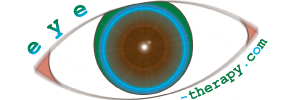
 | Give a man a match, and he'll be warm for a minute, but set him on fire, and he'll be warm for the rest of his life.UU |
Do Men and Women See Colors Differently?
Do Men and Women See Colors Differently?The answer is, "Yes," at least for about half of women. Around half of them are tetrachromatic, which means they have 4 types of cone receptors instead of the usual 3 (trichromatic). They can actually see more colors. For example, in a rainbow, trichromatics can see 7 colors: red, orange, yellow, green, blue, indigo and violet. But tetrachromatics can distinguish 10. 
It also seems to be true that women, in general, are better able differentiate colors in the red-orange range of the color spectrum. That's why a woman may see objects as crimson, Chinese red, maroon or tomato and an man will see red.
|
|||||||
Home
Facts and Fiction
Resolution
Color and Eyesight
Benhams Disk
Chromatic Adaptation
Chromostereopsis
Color Blindness
Color Discrimination
Color Sensitivity
Gender Differences
Metamerism
Trichromatic Theory
Eye Color
Peripheral Vision
Blind Spot
Night Vision
Aging Effects
Hold Time Timing
|
   |
||||||
| Eye-Therapy.com |
DISCLAIMER: The information published here is for entertainment purposes only and is in no way intended to dispense medical opinion or advice or to be a substitute for professional medical care, be it advice, diagnosis or treatment, by a medical practitioner. If you feel ill or if you have a medical issue, you should consult a health care professional.
Site Map |
Terms of Use |
Privacy & Security |
Contact Us |
Purchase Agreement |
Send Feedback |